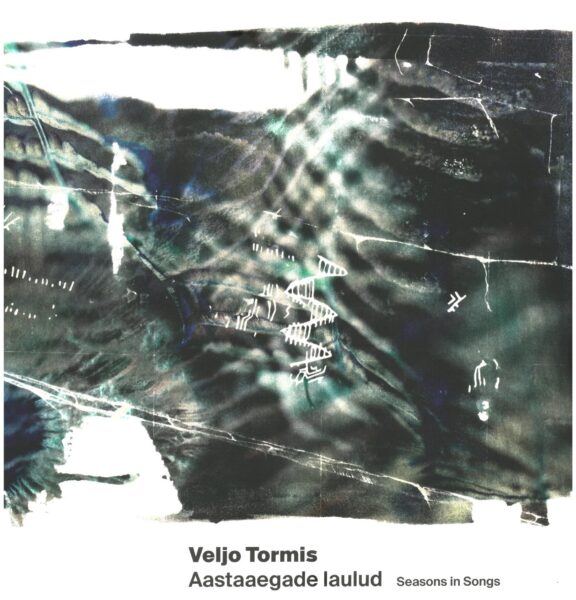
Release: August 2021. Vinyl
Ülo Krigul, Sander Mölder, Liisi Koikson, Kristjan Randalu, EPCC, Kaspars Putniņš
design and additional composition, production)
Liisi Koikson (vokaal / vocal)
Kristjan Randalu (klaver / piano)
Eesti Filharmoonia Kammerkoor / Estonian Philharmonic Chamber Choir
Kaspars Putniņš (dirigent / conductor)
Veljo Tormis (1930-2017)
Kingin sulle kimbukese, 1. osa tsüklist Kimbuke tähti (1963) /
Here’s a Little Cluster, 1st part from the cycle Cluster of Stars (1963)
Tekst / text: Aleksander Suuman
Kristjan Randalu (1978)
Kevadeootus / In Anticipation of Spring (2021)
Veljo Tormis
Kevad, 1. osa tsüklist Neli kildu (1955) /
Spring, 1st part from the cycle Four Fragments (1955)
Tekst / text: Juhan Liiv
Tsükkel Kolm lille (Kullerkupp, Meelespea, Pääsusilm) (1960) /
Cycle Three Flowers (Globeflower, Forget-me-not, Bird’s-eye Primrose) (1960)
Tekst / text: Juhan Liiv
Sügislaul, 2. osa tsüklist Nukrad viivud (1958) /
Autumn Song, 2nd part from the cycle Melancholy Moments (1958)
Tekst / text: Minni Nurme
Kristjan Randalu
Talveootus / Waiting for Winter (2021)
Veljo Tormis
Talv, 4. osa tsüklist Neli kildu (1955) /
Winter, 4th part from the cycle Four fragments (1955)
Tekst / text: Juhan Liiv
Armastus, 4. osa tsüklist Nukrad viivud (1958) /
Love, 4th part from the cycle Melancholy Moments (1955)
Tekst / text: Minni Nurme
Salvestus, kokkumäng, viimistlus / recording, mixing, mastering by Siim Mäesalu
Salvestatud / recorded at ERR, Tallinn, February 25 & 26, 2021
Kaanekujundus / Artwork: Peeter Laurits
***
“It’s not I who uses folk songs, it’s folk songs that use me.” The composer Veljo Tormis
was a great Singer who managed to create an organic blend of words and music,
a fusion of a philosophical message and its musical expression. And to keep both
the concept and composition equally strong. And to hold on to the firm belief in the
righteousness of ancient springs of song but at the same time understand that musical water needed new riverbeds to keep flowing. And to be a teacher of language, history and singing, all three at once.
Our journey on this record continues down the same path. We sourced the music in
Tormis’ works. We have sung it as he taught us – making sure that we know the roots, but with an ear and feel for the time around us. Tormis lived and worked at a time when songs were passed on mainly in writing – music was noted and recreated in sheet music. The present day has seen the (re)emergence of other ways to pass on songs, which broaden the possibilities of written scores. A song lasts as long as it resounds.
Therefore, we can perhaps sum up what we do by paraphrasing Tormis – “it’s not we who use Tormis, it’s Tormis who uses us.”